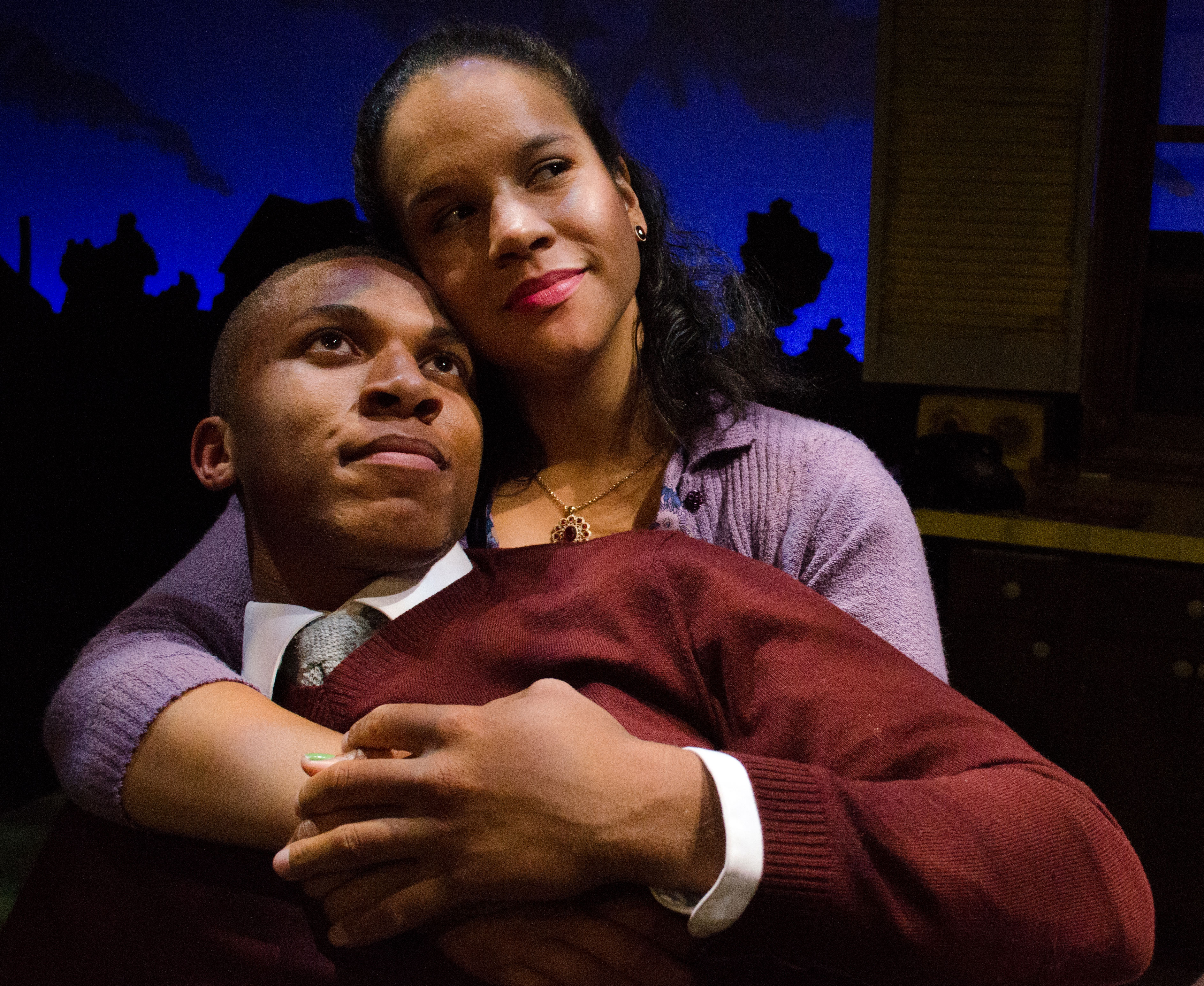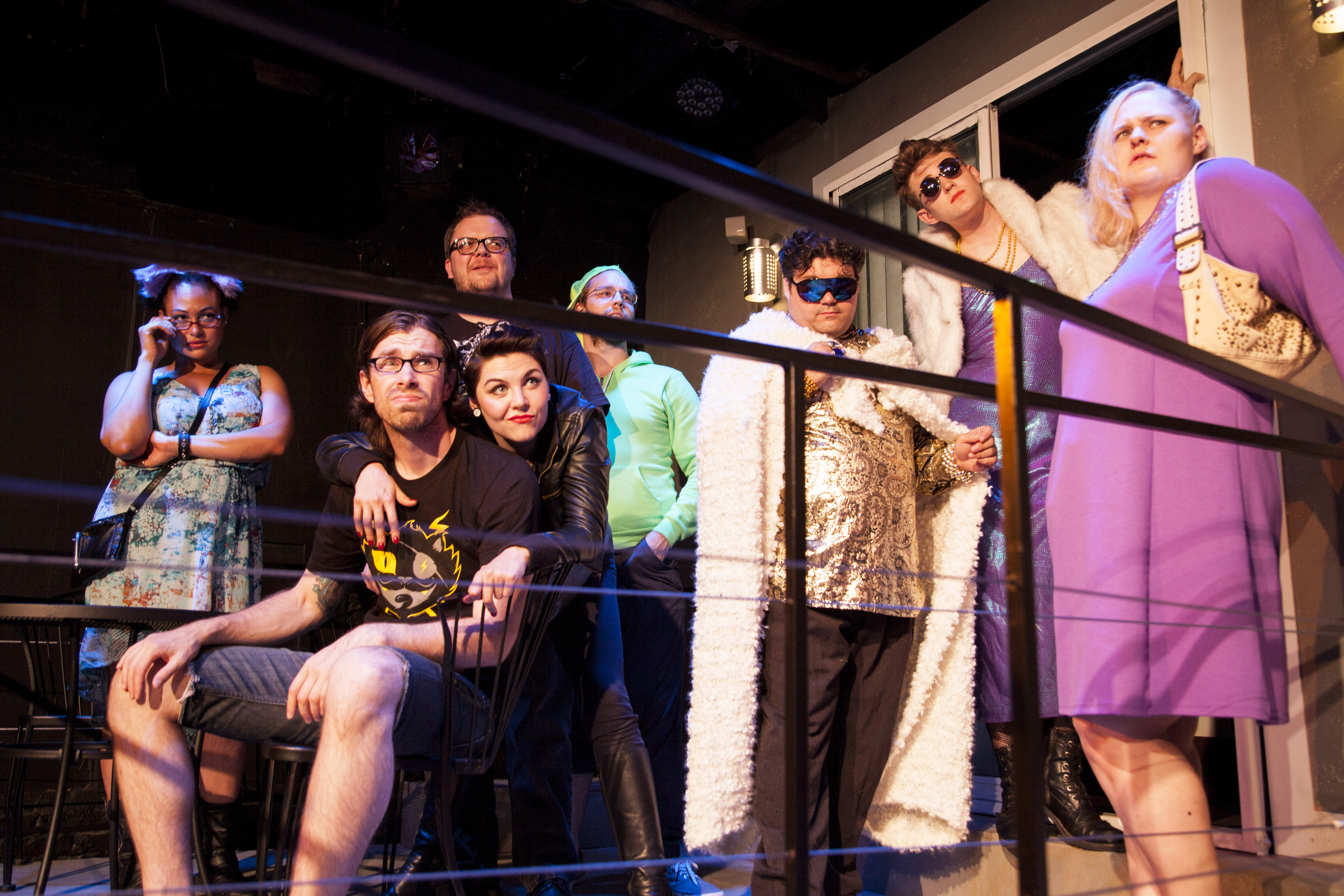Some consider The Adding Machine a mere blip on the pre-pop culture radar—the kind of quaint curio you’d find in a Google search connecting Henry Ford’s creation of the assembly line to Douglas Coupland’s complaint that today’s office cubicles are little more than “veal fattening pens” for Generations X and Y. But make no mistake: This is a ticking time bomb of a show, one guaranteed to detonate every time it’s staged in our increasingly volatile post-industrial economy. (WaMu layoffs, anyone?) And if this brilliant New Century Theatre Company rendering of Elmer Rice’s vision is any indicator, the dehumanization of man remains right on schedule.
Rice’s expressionist opus is both a product of its time (1923) and prophetic, predicting like Brave New World or 1984 how Everyman will eventually be broken on the wheel of progress. What director John Langs (well known for his work at Seattle Shakespeare Company) and an imaginative production crew have created on the ACT stage are worlds as complete and eerily beautiful as anything Tim Burton or Baz Luhrmann have ever put on a big screen.
In the opening moments, we find Mr. Zero (Paul Morgan Stetler) suffering through a typical morning harangue from his miserable harpy of a wife (Amy Thone). As staged, it’s as comic as any Buster Keaton classic and as contemporary as any reality show on the fall TV schedule. We soon learn that, in spite of his early optimism and aspirations, today marks Mr. Zero’s 25th year in his dead-end job, and that Mrs. Zero is none too happy about falling behind the Twos and Threes, let alone keeping up with the Joneses.
Things are not much better at work, either. Zero arrives at his airless office to find a roomful of zombies caught in the same trap that ensnared him, including a co-worker (Jennifer Lee Taylor) he both resents and longs to romance. When Mr. Zero’s years of faithful service are rewarded with the news that he’s being replaced by a machine, he takes matters into his own hands and kills his boss.
Rice then follows Mr. Zero where few playwrights of the time dared—through his trial and execution and into the netherworld of disembodied spirits past and future. There he encounters a singularly disturbing murderer named Shrdlu (Darragh Kennan), whose repressed existence on Earth has led him into an agonized afterlife. Imagine the sunny Jack McBrayer (of 30 Rock and Forgetting Sarah Marshall) as a matricidal misanthrope, because that’s only a starting point for Kennan. In a stellar cast of splendid performances, his stands out.
For the hapless Zero, the worst is yet to come. He’s informed that existence is ongoing and life a series of punctuation marks, and that he’s simply not made of very high-quality stuff. He’s been alive before and not done so well. According to Lt. Charles (MJ Sieber), he’s about to be put out on the assembly line yet again for another turn on the mortal treadmill. Yes, it’s funny, but painfully so. If Rice’s take on the futility of life were true, suicides would be stacking up like cordwood for the winter.
As the Zeros, Stetler and Thone prove once again that they’re among the most versatile and dependable performers around. Sieber is at his Michael Palinesque best as the offhanded functionary Lt. Charles. And Taylor invests her performance with a quiet woe over squandered potential that is at the core of Rice’s tale.
Beyond that, though, it’s impossible to say enough about the talented team of designers who collaborated to make The Adding Machine click. Pete Rush (costume design), Robertson Witmer (sound), and Peter Dylan O’Connor seamlessly move the play from its near silent-movie opening through the glorious colors of the afterworld and onto the assembly line of reincarnation. As I heard someone remark as the applause died down opening night, “I know I’ve seen better plays, but I can’t remember when I’ve seen a better production.” Perhaps. But you’re not likely to see a better production of The Adding Machine.








